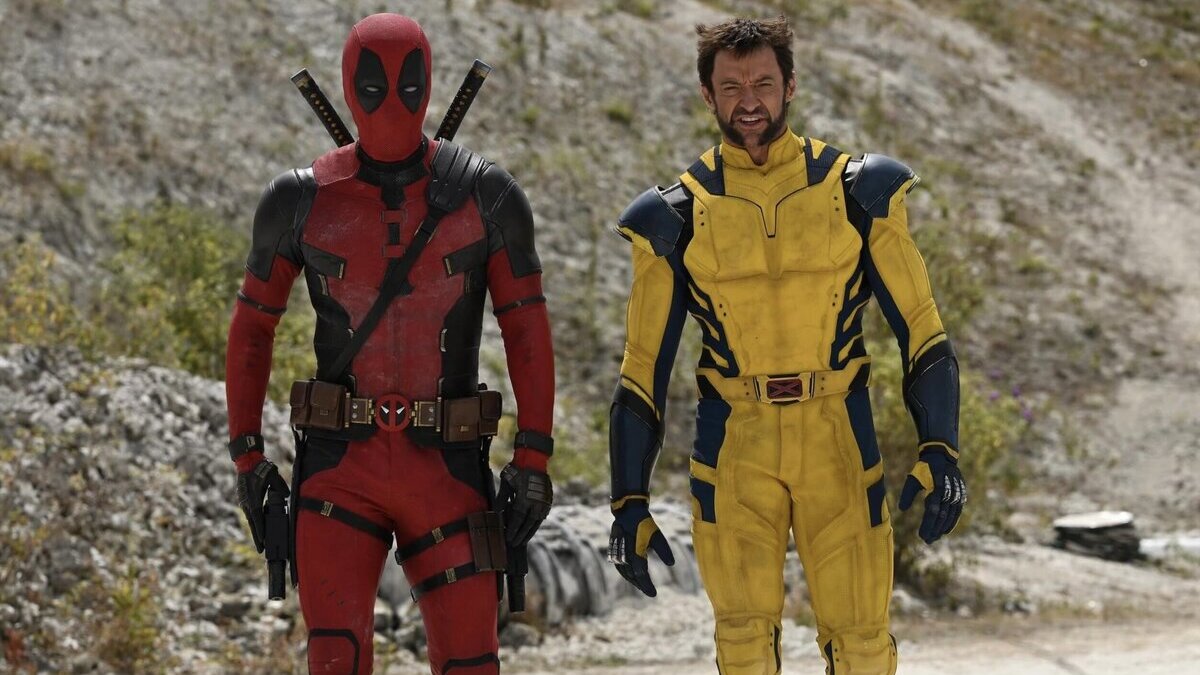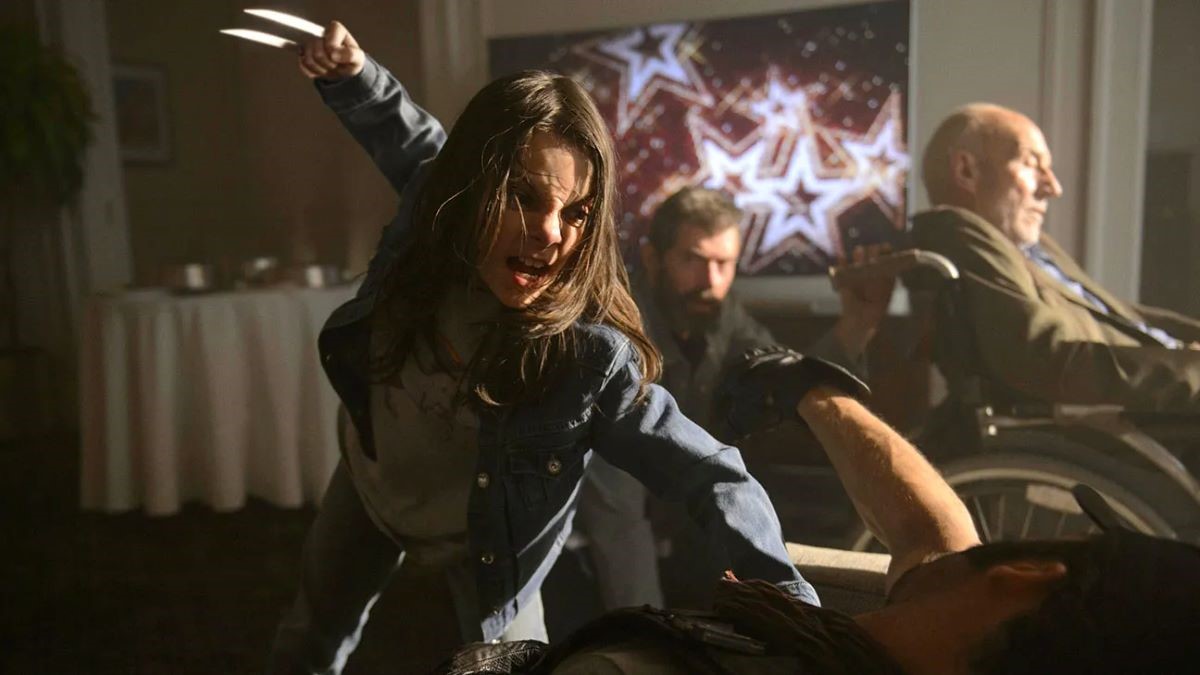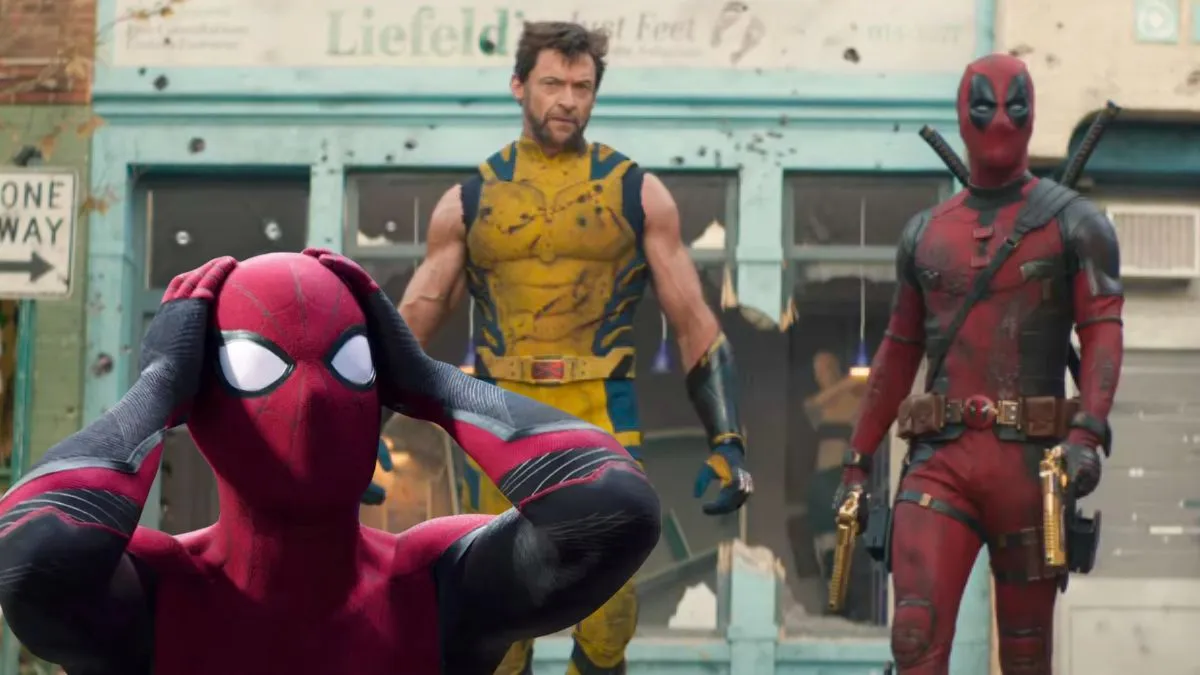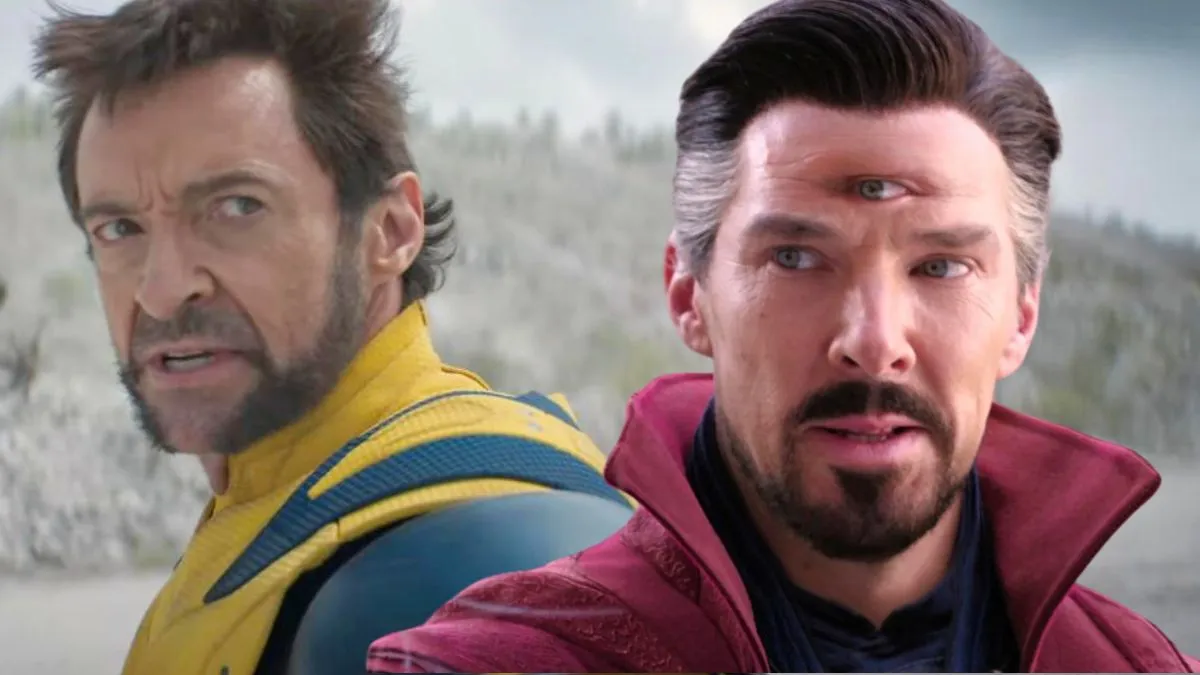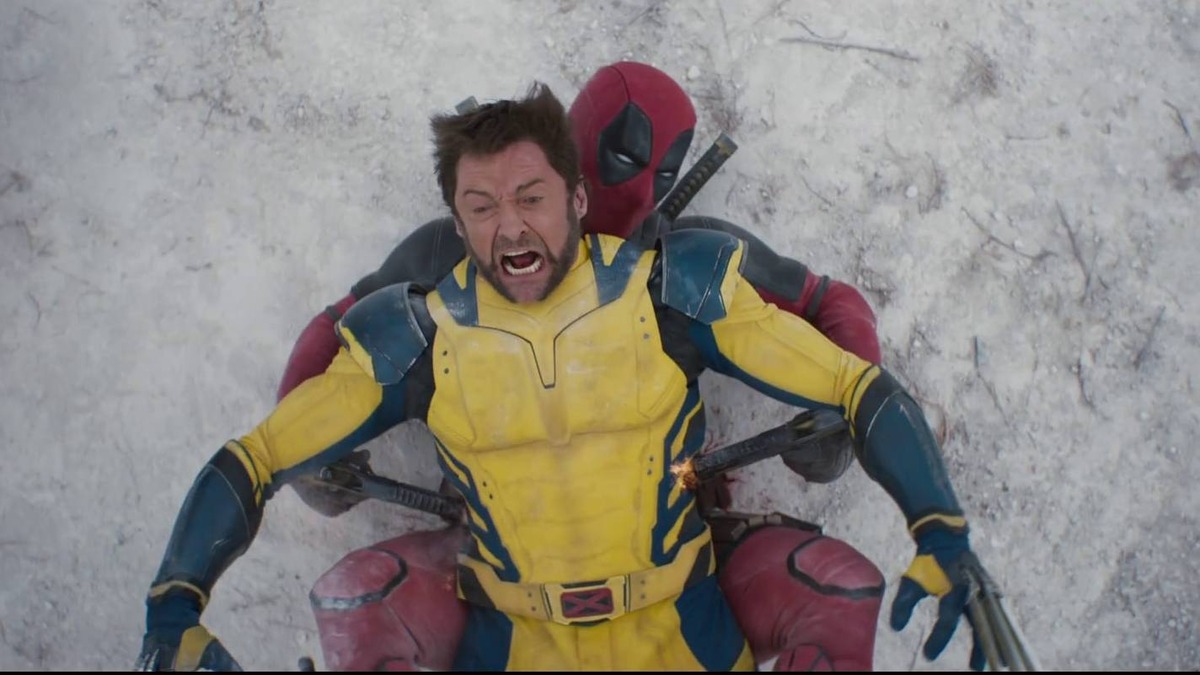
I have seen the future of blockbuster cinema, and the future is Man of Steel.
When audiences flock to theatres this Friday, they will be treated to an experience absolutely unlike anything they have ever seen before. This is not hyperbole. On every level, in every way, by every critical criterion I have to judge the effectiveness of film, and every benchmark of spectacle and wonder I have experienced in my time reviewing movies, Man of Steel is completely, utterly singular. I have never seen anything like it. At once vaster in scope than any superhero movie yet produced, and as intimately, crushingly emotional as any other entry in the genre, Man of Steel speaks in a fresh cinematic language viewers will be largely unaccustomed to. The scale of its action is completely unprecedented, an enormously, viscerally powerful shock to the system, yet in its narrative design and treatment of character, it employs the elliptical, understated rhythms of arthouse cinema. Suffice it to say such a blend has never been attempted on a production with this high a budget.
But just as Christopher Nolan’s The Dark Knight threw out and re-wrote the rulebook for what a comic-book film could aspire to – and more importantly, what it could achieve – Zack Snyder and his team have made something that plays by very few of the preexisting rules for productions of this size. And like The Dark Knight, Man of Steel lands with the precise, explosive weight of a true historical milestone, a major step forward in the evolution of blockbuster cinema and a beautiful, thrilling, and above all else, emotionally moving masterpiece in its own right.
What impresses me most about the film is how incredibly, uniformly tight it all feels. Superman is, as evidenced by the majority of his underwhelming cinematic career, an extremely difficult character to get right, and throughout Man of Steel, one can sense Snyder, Nolan (serving as producer), and writer David S. Goyer putting in every ounce of the work necessary to do him justice. As such, all aspects of the film – every narrative component, character beat, and aesthetic element – is directly, thoughtfully tailored to inform our understanding not only of Superman himself, but of how he fits into our world. I do not intend to draw many comparisons between Man of Steel and prior incarnations of the character – as previously stated, this film is unique – but when one looks at Richard Donner’s 1978 Superman film, one can frequently sense the difficulty those filmmakers faced. It wasn’t just the technological limitations of the time – the script essentially splits the film into three separate, loosely-related movies: one on Krypton, one dramatizing Clark Kent’s ascent to superhero status, and one built around the threat of Lex Luthor. In the balance, it is a very good film, but structurally, it comes across as fragmented, lacking the holistic sense of purpose and function necessary to make Superman – or any character, for that matter – truly palpable.
Man of Steel, on the other hand, feels effortless, because all the pieces are exactly where they need to be for viewers to get swept up in a unified, overall momentum. The introductory material on Krypton is more than just an excuse to ship Kal-El off to earth – it is narrative and emotional context, where what we learn about this society directly informs our understanding of father Jor-El, antagonist General Zod, their respective worldviews, and all conflict to come. Similarly, Clark Kent’s years in Smallville are about more than merely instilling the character with ‘American values;’ by contextualizing Clark’s profound identity crisis within the difficult, identity-forming years of childhood and adolescence, which every single viewer can relate to, we are drawn emotionally closer to the character while the fundamentals of his attitude towards humanity, and the impact and ideology of his earth parents, are illustrated for us. A supporting player like Lois Lane is made indispensible, introduced not as a fiery love interest, but an active participant in the affairs of earth, someone who would be attracted to Superman because he embodies the ‘greater’ that a good journalist naturally strives to discover, and whom Superman would fall for because she represents the best of his adopted species. And perhaps most importantly – because this is where so many blockbusters get it wrong – the nature of the antagonist reaches back around to the film’s Kryptonian starting point, representing Superman’s history while providing the exact challenge necessary to forge his future.
In short, the story is rock-solid and economically told, and nowhere is this more apparent than in the scenes dramatizing Superman’s childhood. I genuinely teared up every single time Kevin Costner was on-screen as Jonathan Kent, and in at least one of Diane Lane’s dynamite moments as Martha, not only because the actors are extraordinary, and have the presence to convey lifetimes worth of love and personal history, but because even their briefest of scenes bears enormous weight in the larger story being told. Just as Russell Crowe’s every appearance tells us more about how Jor-El sees both the world and his son’s place in it, every last moment spent with Jonathan and Martha further illuminates the influences Clark carries with him into adulthood.
Those belief systems – Jor-El’s confidence that Kal-El can act as a beacon of hope and inspiration for humanity, and Jonathan Kent’s insistence that humanity is not ready for the revelation of his son’s true nature – are the launching pad for everything that happens in the film, both literally and thematically. Superman’s physical and ideological battles with General Zod are grounded in these ideas, and Clark’s central arc lies in finding a way to live that honors the teachings of both fathers. Fundamentally, Man of Steel is about the ways in which we struggle to reconcile who we are and what we feel inside with the influences of our pasts, and when I say the film is tight, it is because every single moment extends organically from these basic, human-scale themes. That is a rare feat for blockbuster filmmaking in general, and a balance only a small number of superhero films – Spider-Man 2 and The Dark Knight topping the list – have ever struck.

The themes of the film are embedded in its structure, which, after the opening sequence on Krypton, is organized emotionally, rather than chronologically. Our first sight of Clark Kent on earth is as a wandering, bearded adult, and we come to understand his complex, conflicted state of mind by the way various events – the explosion of an oil rig, the heckling from a man in a bar, etc. – trigger flashbacks to key moments from childhood and adolescence. The tone is resolutely serious, with Amir Mokri’s gorgeous, ethereal cinematography – which borrows more from Terrence Malik than any work of commercial filmmaking – creating a highly emotional, introspective state. Clark is kept at a certain distance from the viewer throughout the film, because Superman is not someone we can ‘know’ through direct or simple means, but the structure and aesthetics constantly reinforce the nature of his internal conflict, and inform our understanding of how he moves through this world. It is a completely different approach to storytelling than any other comic-book movie has used, including Nolan’s Batman films, and I find it exhilarating to see a blockbuster as formally daring and ambitious as this.
Ultimately, this is all reflective of just how completely Man of Steel understands Clark Kent as a character. More than anything else, I am simply overjoyed to see a Superman film that finally treats the icon dynamically without resorting to drawing lines in the sand between Superman and Clark. While Quentin Tarantino would tell you otherwise – that speech in Kill Bill is 100% erroneous – Superman is unique from other heroes in that he does not have a split identity. Superman is Clark Kent, and Clark Kent is Superman, and if he puts on a front in certain situations to maintain some semblance of peace and order in his life, his own identity is sound, singular, and unified. Man of Steel, as an origin story, deals with duality not as an ongoing truth of the character, but a struggle he must overcome to reach his full potential. Clark initially believes his dual alien/human nature is unsustainable, his two fathers’ beliefs incompatible, but his arc is one of finding constancy in identity, and arriving at a point where he can feel completely comfortable in his own skin, whether that skin is dressed in a suit or in tights. This is not like Batman, where Bruce Wayne changes when he puts on the suit (or, more accurately, changes when he takes it off). Whenever Henry Cavill is on screen, he is playing one character, and one character only, no matter how many names that character may have.
Cavill is stupendous in the role, giving a performance so intrinsically rooted in physicality that I fear many will undervalue what great work he does. I love the particular vocal choices Cavill makes, projecting the exact balance of humble benevolence Superman needs to have, but unlike many characters, Superman cannot be defined by the things he says or how he says them. He has to be physical, and we have to understand how his singular physical presence influences his place in the world. This is the basis for Cavill’s work. From the general way he holds himself all the way on down to his slightest facial expressions, Clark’s body feels thoroughly lived-in. Cavill commands the character’s physicality to such a total, startling degree that one quickly stops seeing an actor, and simply sees Superman in his richest, most ideal form.
That physical foundation is important, because the film’s remarkable action sequences are predicated in the audience’s belief that, physically at least, Superman and his powers are not of this earth – that to us, he is effectively a God. Snyder has taken this notion and run further with it than I ever could have imagined, staging action on the largest, most ambitious scale possible. When Superman goes into battle with General Zod and his fellow Kryptonians, it is an all-out, no-holds-barred war. These beings are truly, overwhelmingly super-powered, and Snyder leaves absolutely nothing off the table in depicting their strength. No action is too big, no structure is sacred, and no limits are imposed on the destructive fallout of the battles. When Superman punches Zod halfway across Kansas, or one of Zod’s lieutenants smashes Superman with a fire-truck, the sense of scope created is practically limitless.
Yet the true brilliance of Snyder’s direction is that no matter how vast or apocalyptic the action becomes, its impact is never once lessened. We feel these blows, each and every one of them, in part because the special effects are nigh flawless – this is what CGI is for, showing us images we cannot possibly witness or emulate in the physical world – and more importantly because Snyder’s direction and choreography is sharp, clear, coherent, and remarkably naturalistic, if such a thing can be said of action on this scale. Snyder retains the grainy, filmic aesthetics of 300 and Watchmen, and here, his style is put to its best use yet, where the texture of the image creates a strong, omnipresent sense of tangibility. There may be an awful lot of digital workmanship on display in Man of Steel, but it does not look like digital filmmaking, a subtle but vastly important distinction.

But if Snyder’s fully mature talent for action and visuals is something we could have at least partially anticipated coming in to Man of Steel, the emotional purity of the finished product is not. While Christopher Nolan did have a hand in shaping the film’s narrative structure, and David S. Goyer’s script is a wonderful piece of writing, Snyder is responsible for realizing it all in ways that have such extreme impact. I am particularly taken, for example, with the way he stages Superman and Zod’s final moments together. Without spoiling anything, I shall simply say that it is the most viscerally effective emotional beat of the film, a deeply painful and complex gut-punch disinterested in thrills, excitement, or mayhem; it aims instead to powerfully underline the characters’ respective arcs, and Clark’s journey in particular, and does so entirely through visual execution and choreography. The film is bursting with moments like this, where Snyder fully steps into his own as one of the few directors fully capable of blending spectacle with a profound human element. I always wanted to believe he had this in him – even when I panned Sucker Punch as viciously as I have ever dismissed a film – and I am overjoyed to see Snyder hit this, his biggest opportunity to date, so completely out of the park.
Were time immaterial, I could continue for several thousand more words describing everything I adore about Man of Steel. That I have not yet touched upon Amy Adams – whose Lois Lane stands among the most mature, three-dimensional character realizations in any comic-book movie to date – or Michael Shannon – who immediately takes his place in the film villain pantheon with a Zod who is at once deeply terrifying and remarkably sympathetic – is a minor travesty, and there are many more small but wonderfully observed performances – from Laurence Fishburne, Antje Traue, Ayelet Zurer, and others – that deserve attention. Hans Zimmer, too, is one of the central heroes of this film, delivering perhaps his greatest and most emotionally stirring solo work to date. John Williams defined Superman musically as much as any pop icon ever has been, and I think it is absolutely remarkable that I never once thought of Williams’ fanfare when listening to Zimmer’s compositions. It is possible, even, that I prefer the more subtly affecting nuance of Zimmer’s work.
In the end, though, all that really needs saying is that which I laid out at the start: That I have never seen anything quite like Man of Steel, and it is probable you never have either. I am immensely curious to see how audiences and other critics will respond to the film, given just how much it rewrites and expands upon the existing language of blockbuster cinema. But in my own estimation, I have no doubt of these three truths: That Man of Steel is far and away the best Superman film to date, easily one of the all-time great comic-book movies, and the single most impressive film to hit screens so far this year.
[springboard type=”video” id=”705847″ player=”wgtc007″ width=”600″ height=”350″ ]

